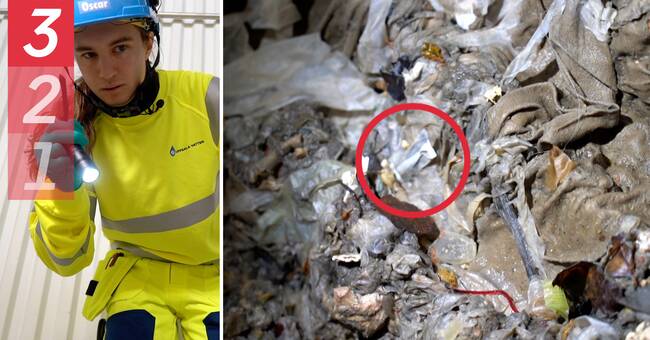Approximately 15,000 tonnes of rubbish is flushed down the Swedish sewers annually, according to the industry association Swedish Water.
This is equivalent to the weight of 10 large elephants - every day.
Several efforts have been made around the country to get people to stop flushing out rubbish.
The "World Toilet Day" on 19 November, which became an official UN day in 2013, has also been used in Swedish contexts to draw attention to the issue.
Despite this, the amount of rubbish in the sewers has remained at the same levels in recent years, according to Klara Westling, an expert at Swedish Water.
Costs millions
The rubbish costs the Swedes somewhere between 10 to 30 kronor per person and year.
This causes wear and tear on the equipment that needs to be maintained and sometimes replaced prematurely.
The costs increase further as the rubbish is often sent for incineration.
- It may not sound like much, but for a city with 100,000 inhabitants, it will be one to three million kroner completely unnecessarily, said Anders Finnson, environmental expert at Swedish waters to TT in January 2021.
Found live turtle
The most problematic rubbish is the combination of grease, hair and wet wipes, says Walter Johansson, wastewater manager at Kungsängsverket in Uppsala.
Namely, they tend to seek out each other and form clumps which in the worst case clog the wires.
But it also flushes down everything from toys to mobile phones.
- The craziest thing I experienced was when a live turtle appeared in a pumping station.
It still lives and thrives today, as far as I know, says Walter Johansson.
The most common foul flushing is snus - 1.4 billion prills annually. Hear instrument technician Oscar Götlind explain why it is a bad idea to flush snus down the clip.

